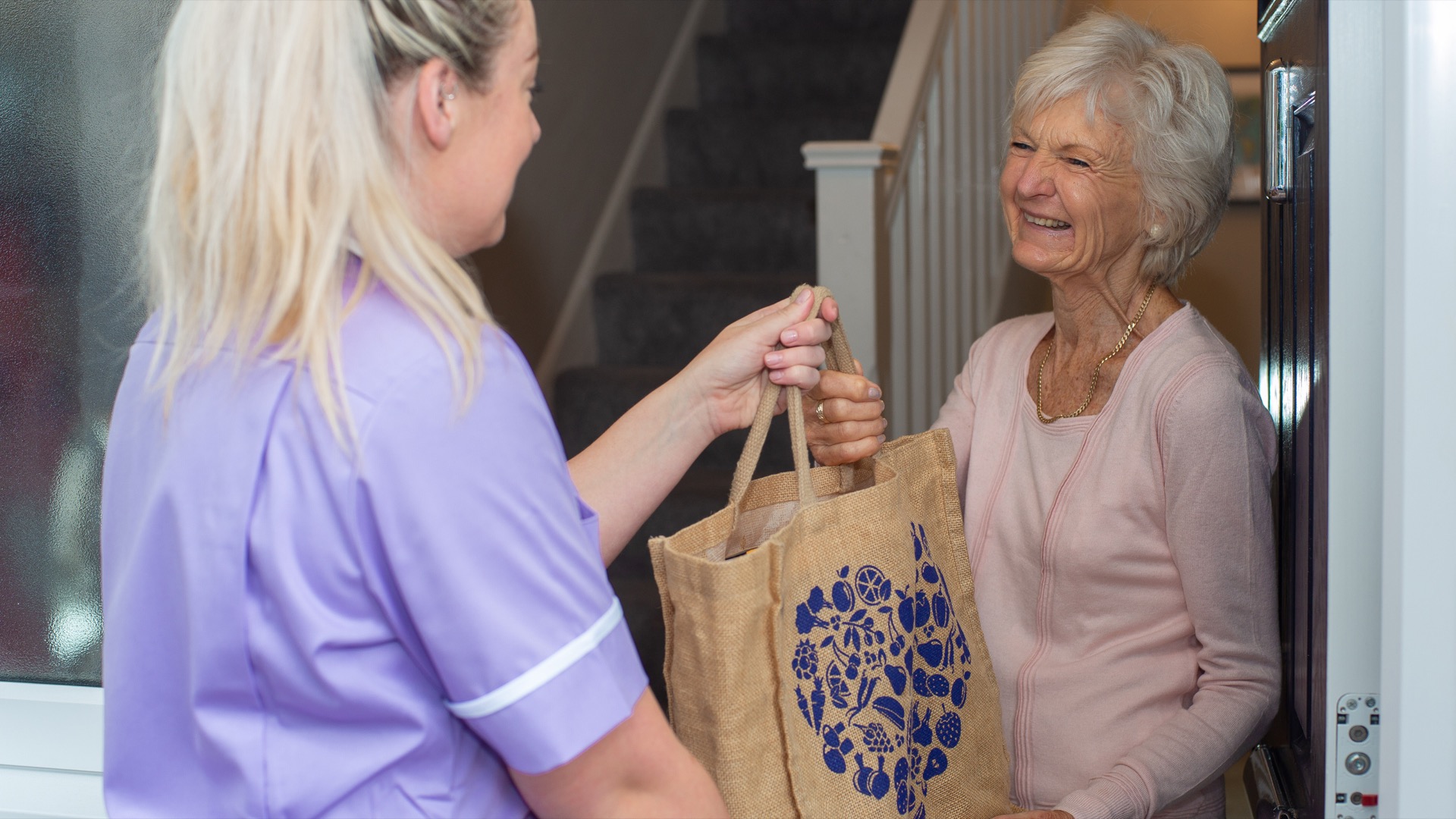A complete guide to care plans
What is a care plan?
A care plan is a personalised, tailored care plan for you and your unique needs.
At Helping Hands, we endeavour to fit a care plan around your needs. You might need support that’s specific to your condition such as dementia, or cancer or to suit your stage of life, like elderly care. It can help with things like housekeeping, cooking and even walking your dog! It can help with more complex medical needs, like medication administration and mobility support. At Helping Hands, we offer live-in, visiting and respite care so that your needs are covered for as little or as often as you need.

How long does a care plan last?

Our different care plans can last for as long or as little as you need it to.
Our respite care is a temporary and short-term caregiver that offers respite to your primary caregiver from 30 minutes per week to up to five weeks. Our visiting care starts from just 30 minutes per week to up to several visits a day, and it can be long-term and ongoing if needs be. If what you need is full-time, long-term support, our live-in carers can provide around-the-clock assistance. With our range of homecare options, we can cater to your unique needs for however long you may need us.
Why are care plans important?
Care plans are important to make sure your individual needs are not neglected; they're looked after in an expert and qualified way.
Varied support options
Our care packages can vary from live-in to visiting. This means we can be there for you 24/7 if needed or can be a temporary helping hand now and again. Whatever your important specific requirements, we make sure to understand them.
Complex medical needs
We offer nurse-led care which means our carers can help with more medically complex tasks. Whether this is ventilation care, stoma and catheter care or medication assistance, we have a team of highly trained carers who can help with medical demands.
Companionship
We value our offer of companionship just as much as our healthcare. Whether to prevent loneliness or just to add a positive new friend to your life, our carers are remarkable at making sure your emotional and spiritual needs are taken care of.
Personal care
Our personal care includes support with continence care, bathing and dressing. We support you with toileting, grooming, and any other tasks that you struggle with. This could also be medication administration or help applying creams and lotions.
Stay at home
We endeavour to make your home as safe as possible, while also keeping it cosy. We can also help make the home more adaptable to your requirements. For example, we can help make your home more dementia friendly by using NHS-approved methods.
Mobility support
We can help with mobility issues and provide adequate support such as walking aids and general assistance. We can help with daily mobility exercises, help make the home more mobile, and keep an eye out for further decline and act accordingly.
How often should care plans be updated?
Care plans should be updated to reflect you and your changing needs.
-
Changing medical needs
-
Our carers will monitor your health progress and keep an eye on any further decline. We will adapt our care package to increase or decrease the level of care required based on your changing medical needs.
-
Changing capacity
-
We can offer our care on a full-time basis or part-time. If your regular caregiver can no longer support you as much, we can step in and increase our hours. Or we can decrease them if you no longer need as much support.
-
Changing budget
-
Budget plays a big part in your decision to receive care at home. We can help work with you and alter your care plan based on what you can afford, and endeavour to get the best deal possible to support you within your means.
What should be included in a care plan?
Care plans are designed around what's best for you and can include the following:
What support you should get
We work with you to determine whether live-in, visiting or respite care will be best for you so you can remain at home.
The patient's desired outcome
We endeavour to understand what you want and need out of a specific care plan. For example, our palliative care plan option.
Who will provide the care
We handpick our carers to match your personality and interests so you can make a companion out of our carers.
When care should be given
We can offer support from as little as 30 minutes a week to several visits a day, to around-the-clock, full-time support.
Records of previous care
Our carers will review your medical history, how this will fit into your current care plan, and how we can improve it.
Your assessed care needs
We can carry out a home evaluation to see what type of care would be beneficial to you and create a care plan.
How Helping Hands can help
We offer a range of care plan options for you and we'll be happy to discuss these with you. With our care plans, you'll be in the best hands around - Helping Hands.
If you want to know more about our care plans, feel free to contact us over the phone or via our seven-day-a-week Live Chat. Or, why not pop into one of the branches for a face-to-face chat? You can view our costs and funding for our homecare options here.
Our carers are expertly trained and qualified in providing care with a wealth of experience. We’re also regulated by the Care Quality Commission (CQC) and Care Inspectorate Wales (CIW), so we’re always on top of our game. With over 150 branches in the UK and over 35 years of experience, we’ve perfected our high-quality level of care. Being regulated means we offer:
Guaranteed high-quality care
Peace of mind
Independent inspections
Regular development
A safe service
